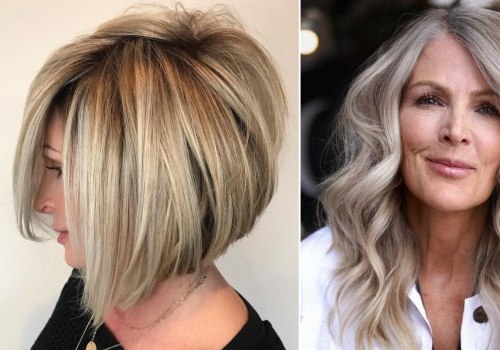As we age, our skin changes and can become more susceptible to damage. But age is not the only factor that can affect the health of our skin. Chronic stress can also have a significant impact on skin ageing, leading to wrinkles, dryness, and other signs of skin damage. Chronic stress is defined as a prolonged period of intense emotional and physical strain. It can be caused by a range of factors, from personal relationships to financial pressures and physical illness.
When it comes to skin ageing, chronic stress can be particularly damaging. In this article, we'll look at the connection between chronic stress and skin ageing, and explore some tips for managing stress to help keep your skin healthy. Stress is a natural part of life, but when it becomes chronic it can take a toll on our physical health—including our skin. In this article, we’ll explore how chronic stress affects our skin and how to protect it from the damaging effects of stress. The body’s response to stress is known as the “fight or flight” response.
This response triggers a release of hormones like cortisol and adrenaline, which can trigger the body’s inflammatory response. This response can cause skin conditions like acne, eczema, psoriasis, and hives. Additionally, chronic stress can also lead to premature ageing of the skin by breaking down collagen and elastin, the proteins that give skin its structure and elasticity. In addition to this, chronic stress can also lead to a decrease in blood flow to the skin, which can lead to dryness and dullness. The good news is that there are steps you can take to protect your skin from the damaging effects of chronic stress.
Here are some tips:1.Get enough sleep: Sleep helps the body recover from the day’s stressors and reduces cortisol levels in the body. Aim for seven to eight hours of sleep each night.2.Exercise regularly: Exercise helps relieve stress by releasing endorphins, which are “feel-good” hormones. Aim for 30 minutes of moderate exercise a day.3.Eat a healthy diet: A diet rich in antioxidants can help protect your skin from damage caused by free radicals. Choose foods like fruits, vegetables, whole grains, lean proteins, and healthy fats.4.Manage stress: Find healthy ways to manage stress such as yoga, meditation, or deep breathing exercises.5.Use sunscreen: Sun exposure can increase the risk of premature skin ageing, so make sure to use a broad-spectrum sunscreen with an SPF of 30 or higher when you’re outside.6.Stay hydrated: Staying hydrated helps keep your skin looking healthy and glowing.
Aim for eight glasses of water a day.
The Link Between Chronic Stress & Skin Ageing
Chronic stress can have a significant impact on the health of your skin. Stress hormones are known to trigger inflammation, which can break down collagen and elastin, the proteins that keep skin looking young and supple. Chronic stress also reduces blood flow to the skin, which can cause dullness and dryness. In addition, stress can cause acne, eczema, and psoriasis flares. High levels of stress hormones can also disrupt the natural balance of oils that keep skin hydrated.This can lead to dehydrated, flaky, and irritated skin. In some cases, chronic stress can even make existing skin conditions worse. The psychological effects of chronic stress can also take a toll on skin health. Stress can lead to anxiety and depression, which can cause skin problems like rashes, hives, and psoriasis flares. In summary, chronic stress can affect the health of your skin in a variety of ways. It can trigger inflammation, break down collagen and elastin, reduce blood flow to the skin, and disrupt the natural balance of oils that keep it hydrated.
It can also lead to psychological issues that can worsen existing skin conditions.
Tips for Protecting Your Skin from Chronic Stress
Chronic stress can have a major effect on our skin health, causing premature ageing, wrinkles and blemishes. Fortunately, there are things we can do to protect our skin from the damaging effects of stress. Here are some tips to help keep your skin healthy:Get Enough SleepSleep is essential for maintaining healthy skin, as it allows the body to repair itself and produce collagen. Aim for at least seven to nine hours of sleep each night to help keep your skin healthy.Exercise Regularly
Physical activity helps reduce stress levels and can help to improve circulation, which can help nourish the skin.Aim for at least 30 minutes of moderate exercise per day.
Eat a Healthy Diet
A healthy diet will help keep your skin looking its best. Eating plenty of fresh fruits and vegetables, whole grains and lean proteins can help keep your skin looking young and vibrant.Manage Stress
Chronic stress can have serious negative effects on the skin, so it’s important to manage stress levels. Try yoga, meditation or other relaxation techniques to help reduce stress levels.Use Sunscreen
Sun exposure can accelerate the ageing process, so it’s important to use sunscreen with an SPF of at least 30 when going outdoors. Apply sunscreen at least 15 minutes before going outdoors and re-apply every two hours.Stay Hydrated
Drinking plenty of water can help keep your skin hydrated and healthy.Aim for at least eight glasses of water per day to keep your skin looking its best. Chronic stress can be incredibly damaging to our skin, leading to premature ageing and other skin issues. It’s important to take steps to manage your stress levels and protect your skin from its harmful effects. This includes implementing stress management techniques such as meditation or yoga, eating a nutritious diet, and using skincare products that are designed to help fight the signs of ageing. By taking these steps, you can help keep your skin looking healthy and glowing.






